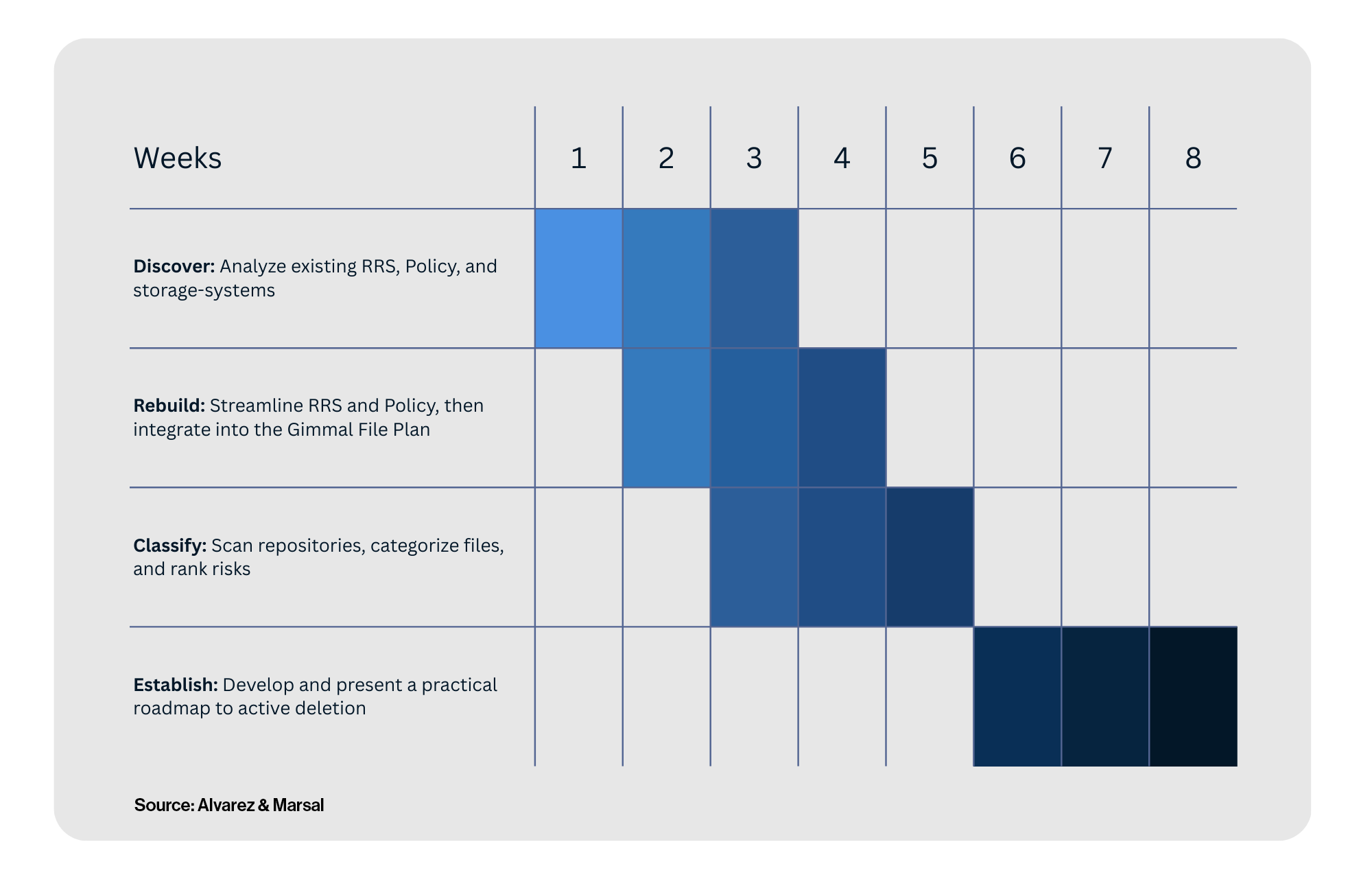
Simplify, Streamline, and Secure Your Records and Data in Just 8 Weeks
• Locate & Classify Sensitive Data: Identify high-risk, redundant, inaccessible, obsolete, and trivial information across your organization.
• Streamline Records Management Policies: Simplify compliance with actionable retention schedules and automated processes.
• Achieve AI Readiness: Eliminate unnecessary data to prepare for AI-driven innovation.
• Reduce Risk & Boost Efficiency: Minimize legal exposure and cut costs with a clear, actionable roadmap.
Reach Out to Discuss
Deleting Your Data
Helping Our Customers Manage
Their Most Important Records Since 2002
Forget Prevention—Adopt Breach Assumption
The 8 Weeks to Delete program offers a structured, compliance-focused approach to managing sensitive information across the enterprise. By aligning records retention policies, simplifying classification systems, and integrating automated solutions, this program helps organizations reduce risk, improve operational efficiency, and prepare for AI-driven innovation.


Why is Deletion Important?
-
Risk Reduction — Minimize compliance and legal risks by securely managing sensitive data and deleting it defensibly.
-
Operational Efficiency — Streamline processes to reduce costs and improve productivity.
-
AI Readiness — Prepare your organization for AI by eliminating redundant and obsolete data.

Forget Edge Cases: Target Data That Puts You at Risk
Most organizations struggle to address high-risk, low-value data trapped in edge cases, leading to unnecessary exposure and complexity.
Here’s how the 8 Weeks to Delete program helps:
- Active PI/SPI and Confidential Data: Manage sensitive data actively and securely to mitigate compliance risks. Clients jump to this box to try to solve data disposition—this is an edge case and is too difficult.
- Stale PI/SPI and Confidential Data: Prioritize this “sweet spot” for deletion — data beyond its retention period that holds risk but no value and is low hanging fruit.
- Non-Business Data: Eliminate redundant, inaccessible, obsolete, and trivial records to declutter systems and improve efficiency.
- General Business Data: Streamline low-risk, high-volume data for better management and records retention compliance.

Case Study
Point Park University Saves $100,000 Annually

Case Study
City of Allen’s Records Management Transformation
Resources








